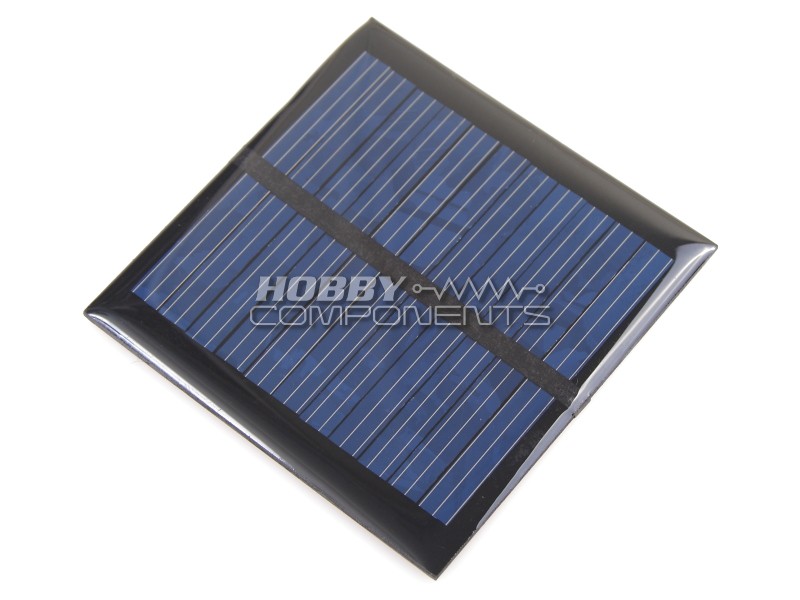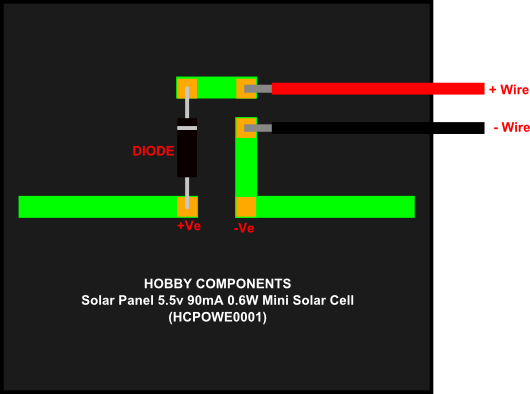
Description:
These solar panels are suitable for small home projects, science projects, electronic applications, charging small DC batteries and building your own powered models/toys/solar displays etc.
The solar cells are encased and protected by a durable outer poly frame.
Polycrystalline silicon
Max working voltage: 5.5V (approx)
Max working current: 90ma
Power: 0.6W
Dimension: 65mm × 65mm x 3mm
Please note that we are currently shipping two versions of this cell. Both cells have the same spec as above but on one of the versions there are some additional pads. If you are connecting the supplied diode we suggest soldering it to the panel in this configuration:

FAQ:
Why is the amount of current I get from my solar panel lower than the specification?
The amount of energy a photovoltaic cell can produce is directly related to the amount of energy there is in the sunlight reaching it. As an example let's start by making a rough calculation of the panels efficiency:
When the Sun is directly overhead the amount of potential energy it produces is about 137 milliwatts for every square centimeter of area it hits. For this panel the actual area of the cell is about 5.6 x 5.2 cm (rough measurement), which is about 29 centimeters squared. This gives the maximum amount of energy that the cell can collect as 3.973 watts. The manufacturer specs this cell at a maximum output power of 0.6 Watts. This means that the cell is approximately 15% efficient. i.e 15% of the energy in the sunlight will be converted to electrical energy by the cell. This figure is pretty typical for a photovoltaic cell; therefore, based on these rough calculations, this seems quite reasonable.
However, the above calculations are based on the maximum possible energy that can be collected from the sun when it is directly above. When taking into consideration the time of day, distance from the equator, and time of year, the sunlight hitting the panel is unlikely to be at this energy level. Let's take for example the UK in mid summer and winter:
In the UK, not being located near the equator, in mid summer, and at high noon we get about 60% (this also varies greatly depending on if you are in Scotland or southern England) of the energy when compared to countries at the equator because the sun is never directly above us. So based on the efficiency of our panel this means that the maximum amount of energy you can reasonably expect to get from the cell is about 0.36 Watts, or about 65.5mA
In winter the sun is significantly lower in the sky, and in mid winter the amount of energy can be only a third of what it is in mid summer. This is because the sunlight has to travel through more of the Earths atmosphere and so gets reflected, scattered, and absorbed by water molecules, dust and other pollutants. Based on the above calculation, a third of the amount of available energy in mid summer is about 0.12 Watts, or 22mA.